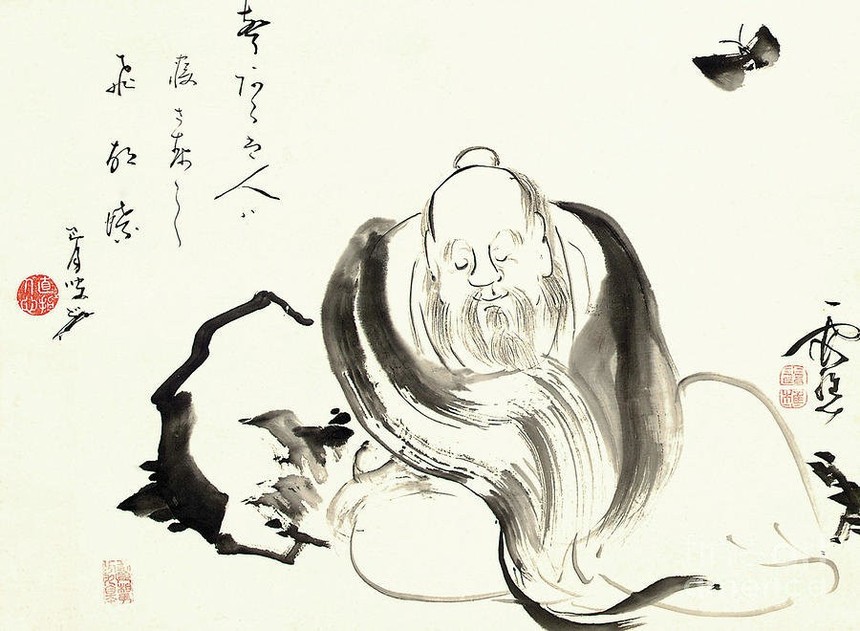
Zhuang Zhou lived during the Warring States period (4th century BC) in the state of Song. For some time, he was a minor official, then left his job and went on a journey, during which he shared his views on the world with others. The Warring States period was a time of ideological confrontation. Many thinkers wandered among the states, hoping that their ideas of state governance would interest some ruler, and he would agree to try them out in practice.
Zhuangzi insisted on the importance of naturalness and absolute spiritual freedom - from material goods, empty teachings and ponderings, Confucian rituals and humanism, and everything that shackles this very freedom. These and other ideas of Zhuangzi are described in the form of parables, short stories, and dialogues and combined into 33 chapters, which, however, were not all written by the philosopher himself. Scholars agree that he was the author of the first seven - the so-called inner chapters. The subsequent external and mixed chapters were written later by his followers, which did not prevent the work from becoming one of the fundamental ones for Taoist teaching. Now the edition of «Zhuangzi» allows you to get acquainted with it in the Ukrainian language. For a better understanding of its content, we provide several vivid quotes from this edition in the masterful translation of Ukrainian translator Won Hak.
The text of the book can hardly be called easy to read. This applies to both its content and the language of presentation. Despite this, we asked Marta Logvyn - the scientific editor of this edition and the leading research associate of the Department of Eastern Arts at the Khanenko Museum - why Ukrainians should read «Zhuangzi»:
Firstly, it's just interesting: to read what people were talking about over two thousand years ago. Such a text is like a time machine. With it, we find ourselves among rulers and marginals, craftsmen, and hermits, «listening» to parables about fantastic creatures and reflections on the fate of quite real states.
When we immerse ourselves in reading, the «second» comes - understanding that the whole kaleidoscope of stories carries one well-articulated message. This is a gentle call to adequately prioritize. Do not do anything extra, but do not miss the right opportunity. At the same time, the book is not a collection of laws or religious teachings, does not require submission and execution. But it shows that the effect of «non-obligation», good will, conscious choice is more powerful than instruction and coercion! If you want, such a life position can be called «the ancient Chinese art of expediency».
By Oleksandr Nykolyshyn